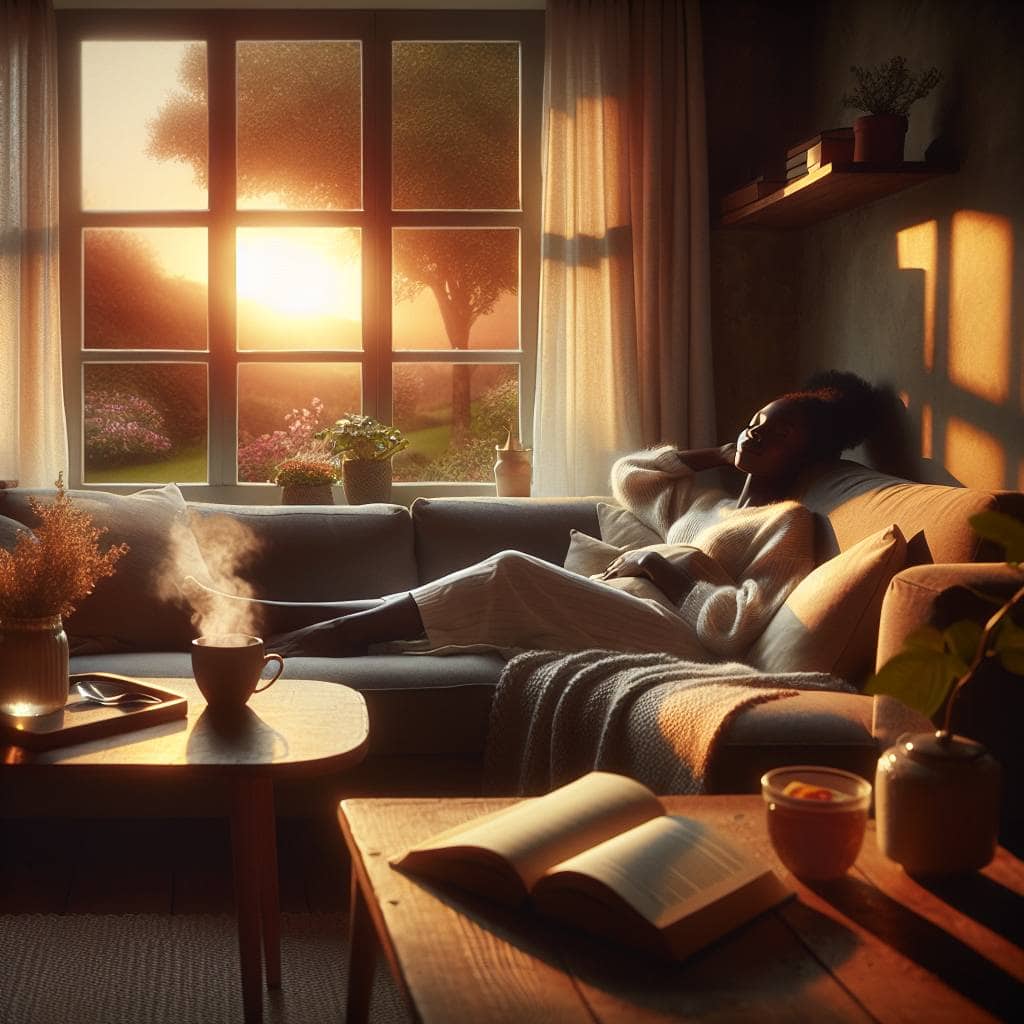I used to believe that shutting down my laptop and leaving the office was the same as leaving work behind. Spoiler alert: it’s not. I’d find myself in the kitchen, making a half-hearted attempt at dinner, while mentally sifting through emails I’d already sent. My mind was like a hamster on its wheel, spinning with thoughts of unfinished projects and looming deadlines. It turns out, disconnecting from work isn’t as simple as pressing a button or, dare I say, tossing your phone out the window—though I’ve been tempted. It’s a skill, one that I, like many of you, am still trying to perfect without losing my sanity—or my job.

So, what’s the plan here? I’ll let you in on my attempts to reclaim my evenings from the corporate clutches. We’re going to talk about building an evening routine that actually works, one that doesn’t involve mindlessly scrolling through social media or binge-watching yet another mediocre series. We’ll dive into stress reduction strategies that might actually stick and explore hobbies that don’t feel like chores. I’m not promising a miracle cure for the post-work blues, but I’ll share what I’ve learned about finding some semblance of mental health after clocking out. If you’re ready to join me on this quest for a clear mind—and maybe a bit of peace—stick around.
Table of Contents
The Evening Ritual: Ditching the Stress and Embracing the Chaos
Let’s be real—when the clock strikes five, it doesn’t mean your brain magically switches off from work mode. If only it were that simple. Instead, you’re likely dragging a suitcase full of mental baggage through your front door. The evening ritual isn’t about finding zen; it’s about acknowledging the chaos and making it work for you. Ditch the illusion of a perfectly serene evening, and embrace the beautifully messy art of unwinding. It’s not about achieving calm; it’s about finding your own brand of peace amid the clutter. Maybe it starts with cranking up your favorite playlist as you cook dinner, letting the beats drown out the day’s stress. Or perhaps it’s the simple act of losing yourself in a hobby—painting, knitting, or even just a Netflix binge that doesn’t pretend to be educational.
Let’s talk chaos. It’s a constant companion, but it doesn’t have to be your enemy. The trick is to harness it, shape it into something that works for you. Maybe you’re the type who finds solace in a chaotic kitchen, turning flour and sugar into something deliciously comforting. Or your version of chaos management is a living room dance party, where you trade the day’s stress for a few minutes of unfiltered joy. The key is to make this chaos yours. Let it be the backdrop for genuine moments of unwinding that don’t feel like a chore. Forget the notion that stress reduction looks like a yoga mat and silence. For some of us, it’s about embracing the whirlwind and finding those rare, genuine moments of laughter or creativity that remind us why we hustle in the first place.
Unplugging the Mind After Hours
Ditch the screens and find solace in silence. It’s in those quiet gaps that your mind finally loosens its grip on the day’s chaos.
Finding My Own Kind of Freedom
Every evening, as the sun dips below the horizon, I’m reminded that the battle isn’t against time, but against my own mind clinging to the day’s chaos. The numbers and spreadsheets fade, leaving room for something raw and real. It’s not about signing off from work; it’s about signing on to myself. My escape doesn’t come with a manual—some nights it’s a novel that’s been gathering dust, other times it’s a playlist that drowns out the office echoes. And yes, sometimes it’s just a quiet moment with nothing but my thoughts and a glass of wine.
The irony is, I’ve found freedom not in abandoning the structure of my day but in flipping it on its head. The rigidity of schedules becomes the fluidity of spontaneity. It’s a dance between the predictable and the unknown, where hobbies are more than just pastimes—they’re lifelines. They anchor me back to who I am when I’m not crunching numbers. In this delicate balance, I’ve realized that mental health isn’t a destination; it’s a journey, a constant negotiation of space and time, where every evening offers a new chance to reconnect with the pieces of me that truly matter.


